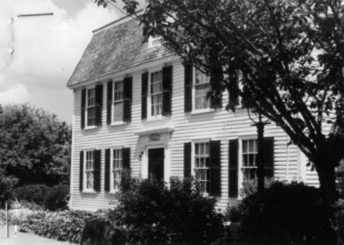One of my favorite songs is Bastille’s “Poet,” off the double album “All This Bad Blood.”
In the chorus, frontman Dan Smith sings, “I have written you down now, you will live forever / And all the world will read you and you will live forever / In eyes not yet created, on tongues that are not born / I have written you down now, you will live forever.”
It got me thinking about how when we write anything down, we are creating history for someone days, weeks, and even years in the future to find and learn from.
The houses of Marblehead are no exception to this, with the town’s long, storied history and archives that are nearly as extensive.
There is a house here in town with its history outside of the archives, living instead in the pages of a novel.
Anya Seton’s 1948 novel “The Hearth and Eagle” is a historical novel that takes place in Marblehead.
In the 1948 edition, the author’s note reads, “As I returned (to Marblehead) again and again, and studied the material more deeply, the town itself produced the story of Hesper (Honeywood) and her family and the old Inn.”
Hesper Honeywood is the fictional main character of the novel, and the “old Inn” is based off of 30 Franklin St. Franklin Street itself is mentioned many times throughout the novel.
Though the plot in “The Hearth and Eagle” is fictitious, Seton emphasized just how much the true Marblehead influenced the story.
“Marblehead, Massachusetts, the background to this story, is typical of many of our New England seacoast towns in the development and decline of two out of three of the industries which have supported it through the years, and at first I had no intention of naming it specifically. But as I began research over two years ago, I soon discovered that Marblehead is far too vivid and fiercely individualistic to be flattened into a type,” Seton wrote.
Seton, in choosing Marblehead and all of its quirks to be the background of her novel, has penned this town into history. Because of her and her novel, people who will never step foot on Marblehead’s streets will know this town.
We cannot escape history — neither its presence or the act of making it — no matter how hard we try. Even when we try to evade it by delving into fiction, there too we are met by history and its grip.
Marblehead has been written down, and it will live forever.

